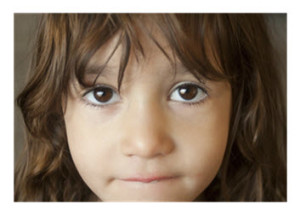You may dispute the study that is referenced. You may dispute the comparisons made to our youngest and most vulnerable. However, it would surprise me if you dispute the logic: Children who grow up in neglect and despair are less likely to succeed in life, however you define that success.
 A recent article broaches this subject from several angles. Appearing in The Huffington Post, it addresses issues of maternal attention (or lack thereof) that often results from income inequality – a catch-all phrase popping up constantly these days – which, for purposes of this discussion, we might refer to as poverty, or living in a low-income bracket.
A recent article broaches this subject from several angles. Appearing in The Huffington Post, it addresses issues of maternal attention (or lack thereof) that often results from income inequality – a catch-all phrase popping up constantly these days – which, for purposes of this discussion, we might refer to as poverty, or living in a low-income bracket.
Now, let’s get real. Early childhood experience shapes us. It is not the sole determinant of who we will become of course, and I would argue that geography is the most fundamental factor in setting the stage for an individual’s future. That said, research reflects how vital those first few years are for everything that follows.
Education, Early Childhood Education, Benign Neglect
In “Not Everyone Has the Tools to Become Rich: How Our Childhood Shapes Our Ability to Succeed,” writer, historian, and college lecturer Anthony W. Orlando writes:
… Some mothers have easy access to the basic necessities of life — food, shelter, clothing, transportation, health care — but many do not. Millions of mothers live paycheck-to-paycheck, working multiple jobs and long hours, leaving them too busy and too exhausted to give their children the same attention as their wealthier peers.
These statements certainly explain benign neglect in many cases: It’s all you can do to put food on the table and arrange for minimal childcare; time for listening to a child, holding a child, reading to a child – these become luxuries when you’re fighting for survival.
So what’s your first reaction to statements about those mothers who are “too busy and too exhausted” by their long hours? Maybe you say to yourself: “They should do something differently. Find a better job.” Maybe your reaction is tinged with blame: “They should have made better choices and they wouldn’t be in that situation.”
Don’t those knee-jerk responses assume access to education, a model for an alternative, no dramatic events that have left these mothers flailing in their fall-out? Don’t they assume the existence of those “better jobs?”
Perhaps your response is more along the lines of this: “The problem is overwhelming. I can’t imagine how I can possibly help.” I understand the sense of powerlessness, but we can help. We can open our eyes. We can pay attention to the politicians. We can pick one way, perhaps two, in which we – as individuals – can make a difference.
Early Childhood Experiences of Despair and Anxiety
Isn’t the importance of nurturing our infants and young children common sense? Don’t we all realize that growing up hungry, sick, disrespected, knocked around, or living in fear damages us in profound ways and promises a dispirited and dysfunctional society? Isn’t that where we’re headed? Isn’t that where millions already find themselves?
How is it that we have arrived at this state of affairs where we need to call upon neuroscience to demonstrate what intelligent adults ought to understand?
As for data, Mr. Orlando continues making the distinction between those children who are raised with the basics covered and those who are not:
The difference is so drastic that children raised in poverty have brain activity that looks like it’s been damaged by a stroke. Study after study show that these early scars last long into adulthood, affecting everything from job prospects to marital happiness.
On his blog, Mr. Orlando reminds us that while we think “getting an education” is the answer to everything, options for attaining that education are narrowed before a child’s birth. In “No, Education Isn’t Enough to Get You Out of the Ghetto,” he writes:
By the age of 3, low-income children hear 30 million fewer words than their wealthier peers. Kids whose parents can afford to send them to high-performing preschools are more likely to graduate from high school, half as likely to get arrested, and almost three times more likely to own a home in adulthood.
 Brain activity that resembles a stroke victim. 30 million fewer words than their wealthier (3-year old) peers. How can we not be struck by that? How can we not want to do something – anything – picking one area of attack, to improve the situation?
Brain activity that resembles a stroke victim. 30 million fewer words than their wealthier (3-year old) peers. How can we not be struck by that? How can we not want to do something – anything – picking one area of attack, to improve the situation?
Myths About Low-Income Parents
If we think that low-income parents care less about their children than “the rest of us,” we would surely be wrong. I will go beyond my personal anecdotal experience, which nonetheless includes a period of time working with a non-profit early childhood educational organization, and my years as a parent volunteering in my boys’ schools with a diverse demographic including a significant low-income population.
I cite the following, again from Mr. Orlando:
… low-income parents are just as committed to their kids’ education as their wealthier counterparts… The problem is, they are less able to navigate the educational system because they are less informed. They also have less money to spend — and the gap in money spent on “enrichment activities” has been growing for the past four decades.
With economist Thomas Picketty’s “Capital in the Twenty-First Century” on my “To Do” list – a gargantuan task given a rather overflowing plate – I’m nonetheless adding Mr. Orlando’s “Letter to the One Percent,” which promises to be an informative read.
Kristof on the Hard Life
I will cite one other recent article, by Nicholas Kristof, “Is a Hard Life Inherited?” and ask you to consider this, which opens the opinion piece:
One delusion common among America’s successful people is that they triumphed just because of hard work and intelligence…
Mr. Kristof goes on to point out the realities of being raised by nurturing parents, as facilitated by not being poor, by reading to children, and if disadvantaged by low income, not further constrained by neglect and substance abuse. Like Mr. Orlando, he, too, has recommendations:
… a higher minimum wage, early childhood programs, and a focus on education as an escalator to opportunity…
Mr. Kristof also emphasizes that empathy – which costs nothing – is an excellent starting point. But that seems to be more challenging than one might think; along with a growing income gap, or possibly as its toxic result, our nation seems to be suffering from an empathy gap as well.
As we send our children back to school this month, consider this: Would you want that disadvantaged child to be your child, your grandchild, your best friend’s child?
How Do You Define a Civilized Society?
If we wish to live in a civilized society, we cannot ignore our neighbors. Nor can we insist (blithely, blindly, foolishly) that we all have “equal opportunity” and if So-and-So can rise out of poverty to accomplish great things, then so can we all. If that were the case, then wouldn’t everyone be doing just that?
By way of clarification, a definition of “civilized” will include descriptive terms like reasonable, respectful, comfortable, just. You can well imagine my feelings on how we’re performing as a “civilized” society.
Each year, as my taxes (seem to) go up, in particular my property taxes that fund local public schools, I am (initially) angry: I have made no improvements to my small home, my income isn’t rising along with my taxes, and every service I require to “keep going” has grown more expensive. Yet I remind myself that property taxes are, in part, financing the very schools that educated my children over the course of 15 years. Far from perfect, with all its flaws, it was a decent system with many fine teachers.
 Whether or not I believe public schools should be financed by property taxes is, to some degree, irrelevant. For now, these taxes are helping children learn, as the taxes of my neighbors helped my children learn. My volunteering, in the years I was able to do it, also added value – and cost nothing but sweat equity, for which I was handsomely repaid in smiles.
Whether or not I believe public schools should be financed by property taxes is, to some degree, irrelevant. For now, these taxes are helping children learn, as the taxes of my neighbors helped my children learn. My volunteering, in the years I was able to do it, also added value – and cost nothing but sweat equity, for which I was handsomely repaid in smiles.
I may disapprove of how my taxes are used and it is my right to vote my disapproval. But I understand that there is no free ride, and should not be. That, too, is logical. I will add that when I read about the one percent saving on their taxes and corporations relocating or restructuring per IRS loopholes, thereby not paying hundreds of millions in taxes, I see red.
Our Collective Children, Our Collective Responsibility
By no means do I intend to dismiss the critical nature of individual responsibility, dogged determination, and the proverbial indomitable spirit that some people demonstrate again and again. But aren’t we more likely to inspire exactly these qualities in a child who isn’t hungry to be held, much less fed?
Do I want my own children to do well, to “succeed?”
Naturally. They’ve worked hard; I’ve worked hard to afford them advantages; my parents worked hard before me for precisely the same reasons, but during an era that seemed less cruel and complex, at least, and let’s be frank, if you were white.
My sons have also seen financial struggle up close – not of the sort discussed in these articles, but sufficient to teach them there is no free ride, there are no guarantees, and we are, none of us, in this alone. Nor should we be.
As I see it, my responsibility as an adult does not end when my children have flown the nest; it transitions. I recall my own mother, a complicated woman, who, in her seventies, turned her skills to raising funds for babies and toddlers diagnosed with a failure to thrive. Those years serve as a model to me, certainly if I wish for my children and yours to lead their lives in a world that is eventually more compassionate, more inclusive, more just, and more civilized.
References and articles of interest:
- New York Times: A Closer-to-Home Tax Break
- New York Times: Is a Hard Life Inherited?
- NAEYC (National Association for the Education of Young Children)
You May Also Enjoy
This emphatically hits home with me. During my single mother days (some of which were so meager that we were on the rolls of food stamps, WIC and state run healthcare), I mournfully witnessed the advantages that the peers of my children had with mothers available to taxi, quiz, instill gems of knowledge and more, while I was doing my earthly best to keep us fed, housed and together. I read to each of them, together, and they missed out on much needed one-on-one attention. I paid for capable, but very basic childcare when what I longed for the most was to spend that time investing in my own children, rather than having someone else do it.
We survived and even thrived through that season, but I know there are skills, disciplines, social adeptness where I am still seeking to ‘catch up.’ Sometimes, it was all I could do to work, feed, clean and snuggle. Imaginary play, vocabulary building or extras like sports/art/lessons of any sort were just luxuries in which we didn’t indulge.
I’m thankful that season is past. I have no solution – only to do the best with what we have each day. Some days will be better than others.
Missy, Thank you for putting a face and a voice to so many of us (and I include myself) who have gone through years in which no amount of effort was sufficient to dig out of the hole caused by life events. Perhaps it takes experiencing it to understand (and grow that “empathy”) – being so weary from looking for work and doing any work you possibly can, getting food on the table and trying to pay attention to kids as best you can – and feeling like it’s never enough, never good enough, because you’re worried about food next week or the week after, or the need for glasses or a dentist, or how much longer you can manage to hang on to your apartment or home.
This is certainly not exclusively a single mother issue, but it is (and has been) an issue for many of the single mothers I’ve encountered in “real life” and online over the years.
We all miss out – our kids most of all – when this kind of strain (and far worse) is the norm.
I’m so glad you found your way out. Making the best with what we have each day seems like a great attitude, but we also begin a solution when we talk honestly about these issues and without shame.
Thank you for reading and commenting.
The Conservative end of the spectrum has ofttimes touted the idea of “entitlement” when discussing any program designed to assist people in need. (welfare, food stamps, educational subsidies, etc.) They start from the premise that somebody deliberately chooses to be poor.
These are not big picture thinkers.
A country, the collective we, must support its citizens. It must level the playing field so everyone has a chance of getting ahead and succeeding. Successful people find work. Working people pay taxes. And paying taxes is far better than receiving aid. It contributes to the greater good of the country and we all come out ahead. It’s not charity as the GOP qualifies it; it’s all of us helping one another to have a better life. If we help one another get ahead, we all get ahead.
Mr. Belle, I quite agree! Thank you for reading (a lengthy piece, I know), and for commenting.
You mention geography, and I’m intrigued by this. I do agree that it has a big influence on a whole lot of what we learn, prefer, how we behave, etc. I’d like to see a fuller treatment of this.
Also, access to information. That’s so crucial! It’s easier and easier these days with the Internet at our disposal — and I assume that every public library in the universe at a minimum has a computer with a connection. Of course, there’s more — there’s having the skills to make sense of that information, figuring out what applies to you, your kid, your situation, etc. It’d probably be useful to have a “critical thinking for school choice” course freely available. That sure would have helped me back in the day.
I found the number-of-words stats intriguing. My son and I talk constantly, partly because we’ve been lucky enough to be able to arrange our lives that I can stay home with him, and partly just personalities. And with this, I notice how economics really tells the story here. Where you live, the time and energy you can give to research, and the costs of taking time off — it’s not easy.
If I might add: some of the economic barriers are mitigated where I live, in New Zealand. 1) school funding is tied to taxes, not some silly standardised tests. I take this to be obviously good, and something that the US should return to. 2) uniforms. Primary schoolkids wear uniforms around here, and I take this to be good. There are HUGE income disparities in my community, but among the kids at school, that’s not a concern — or at least not written all over their clothing choices. I really think it makes a difference to see your peers as equally as possible, and removing class-oriented outerwear is a smart move in this direction.
One more thing: those damned standardised tests. Get rid of them! Put physical education arts back, and I don’t doubt you’ll see happier and smarter kids. Of course, the testing industry is very powerful by now, so I have little hope of seeing a change in the US any time soon — or ever. (I note that the current administration just made it more possible for lobbyists to hold high level government positions — a dreadful mistake whose effects will be felt for a loooong time to come I imagine.)
Whew. Better step off my soap box….
Fascinating to hear how things are different, Brian. And you raise an excellent point about standardized testing. (A terrible way to fund schools, and a terrible way to compensate teachers, if you ask me.)
I’ll think about writing more on the “geography” point. 🙂 Then again, to some degree, you just made my point. Consider how your son will be schooled, just one dimension of a quality life, versus any child in the US of the same age. (Now consider if that child is raised / schooled in Mississippi (see this source) versus Massachusetts.) This is only one way in which geography is a determinant. Shall we mention Syria vs Sweden, for example?
Thanks, always, for stopping by from so far away!